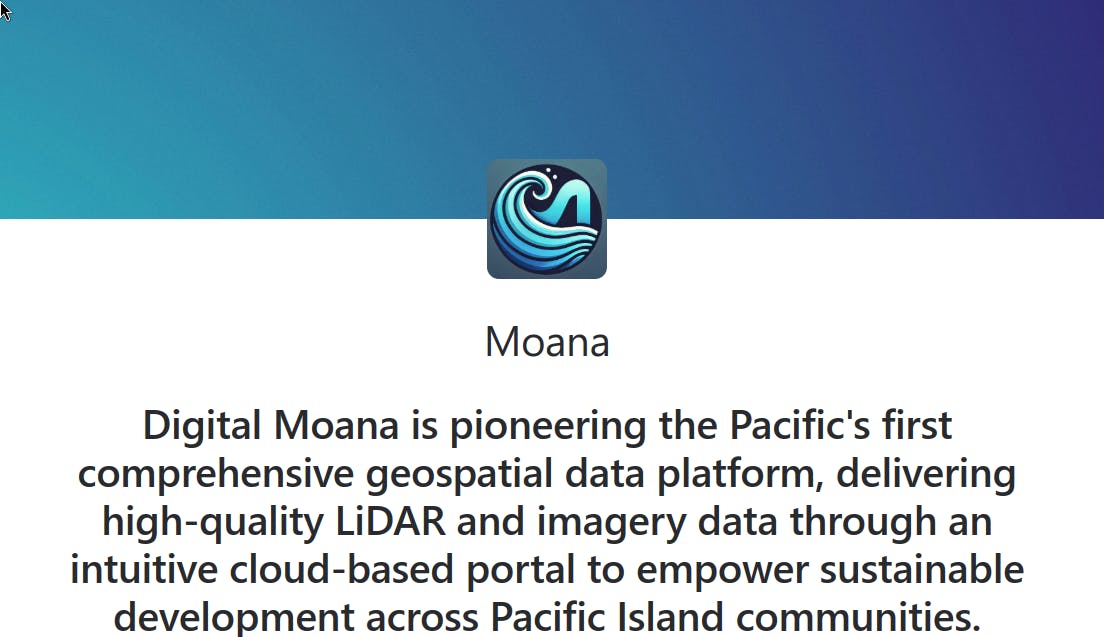Today, February 17, 2025, marks a significant milestone for the Pacific Islands as we officially launch the Development Phase of the Digital Moana Initiative. This groundbreaking project aims to enhance geospatial data management across the Pacific region by leveraging decentralized physical infrastructure networks (DePIN) and blockchain technology. The initiative will democratize access to high-resolution LiDAR and point cloud datasets, enabling more efficient resource management, disaster response, and economic opportunities for the region.
The Case for DePIN in the Pacific Context
The DePIN model has already proven its worth in various sectors, from Helium’s wireless networks to Hivemapper’s crowdsourced mapping solutions. The Pacific Islands present a unique opportunity to implement these decentralized principles in a region where data sharing and infrastructure coordination have historically been challenging. The Digital Moana initiative is now entering its Development Phase, where we will build a unified, blockchain-powered geospatial data ecosystem to efficiently manage and distribute high-resolution LiDAR data and dense point cloud datasets.
Architectural Framework: A Regional Approach
The Digital Moana infrastructure will establish a pilot network connecting six major Pacific nations: Papua New Guinea, Solomon Islands, Vanuatu, Fiji, Samoa, and Tonga, with plans to expand to the rest of the Pacific on a demand basis. Each node in this network will maintain its local infrastructure, including PostgreSQL/PostGIS databases and processing capabilities, while remaining interconnected through a cryptographic distributed cloud portal on IPFS (InterPlanetary File System). This system is specifically designed to avoid a single point-of-failure in handling the complexities of large-scale LiDAR and point cloud data management, enabling efficient storage, processing, and distribution of these detailed datasets. At this point in time we are considering Aleph Cloud as a potential platform for implementing this decentralized geospatial infrastructure.
During the Development Phase, the Digital Moana initiative will focus on the systems development of its core infrastructure, emphasizing the database, data upload mechanisms, and full-stack back-end and front-end systems. The database development will involve designing and implementing a distributed PostgreSQL/PostGIS architecture, with back-end nodes deployed across participating Pacific Islands.
This decentralized approach ensures that each island maintains local control over its data while contributing to a unified regional network. For data upload systems, we will develop secure and scalable pipelines to facilitate seamless integration of data from aerial and drone surveys, ground control points, and historical datasets into the distributed database. The front-end will be hosted on Aleph Cloud with IPFS, providing a decentralized and resilient user interface for data visualization, subscription management, and analytics.
This setup ensures that users can access the platform reliably, even in low-bandwidth environments, while maintaining the decentralized ethos of the initiative. Together, these components will form a cohesive, full-stack system designed to support the Digital Moana initiative’s goals of decentralized data management and accessibility.
Blockchain-Powered Data Access Design
A key feature of the Digital Moana initiative is its innovative use of NFT-based subscription management for LiDAR and point cloud datasets. During the Development Phase, we will implement a transparent and efficient system where data access rights are tokenized. Each dataset subscription will be represented by a unique NFT containing crucial metadata about geographic coverage, point cloud density, classification levels, resolution, and access permissions.
This approach will address several longstanding challenges in geospatial data distribution:
- Transparent ownership and clear audit trails of data usage
- Automated compliance through smart contracts
- Enhanced analytics capabilities for resource optimization
- Real-time tracking of data utilization
- Efficient distribution of large-scale point cloud datasets
- Decentralized data management and access
- No single point of failure
Quality Control and Local Empowerment Framework
The Development Phase will also incorporate a robust quality control framework to ensure data integrity while respecting local autonomy. Each participating nation will maintain its processing capabilities while benefiting from decentralized quality assessment protocols. This includes specialized workflows for LiDAR data validation, ensuring accuracy in point cloud classification, and maintaining consistent data quality standards across the region. This hybrid approach will allow for standardized data quality while accommodating local needs and requirements.
Synchronization System Development
The Development Phase will include the creation of a sophisticated synchronization service to maintain data consistency across all nodes, with specific consideration for the unique challenges of managing large LiDAR datasets. This system will ensure that updates and new datasets are efficiently distributed while respecting bandwidth limitations common in Pacific Island nations. The decentralized cloud portal will act as an orchestrator, managing data flow and access rights while maintaining the decentralized nature of the network and implementing efficient compression and streaming protocols for point cloud data.
Economic Implications and Sustainability Considerations
By implementing an e-commerce system integrated with blockchain technology, the Digital Moana platform will create new economic opportunities for Pacific Island nations. The platform will allow for the monetization of high-value LiDAR and point cloud datasets while ensuring fair compensation for data providers. This economic model will provide a sustainable funding source for ongoing data collection and infrastructure maintenance.
Security and Future Resilience Planning
The Development Phase will prioritize security, incorporating multi-factor authentication, encrypted data delivery, distributed web presence, and regular smart contract audits. These measures will ensure that sensitive geospatial data remains protected while maintaining accessibility for authorized users. Future enhancements could include secondary markets for data subscriptions, advanced analytics dashboards for point cloud visualization and analysis, and automated feature extraction capabilities.
Implementation Vision
The Digital Moana initiative represents more than just a technological upgrade; it’s a paradigm shift in how Pacific Island nations manage and share their geospatial resources. By embracing DePIN principles and blockchain technology, this system will create a more equitable, efficient, and sustainable approach to geospatial data management, particularly for high-resolution LiDAR and point cloud datasets.
As we embark on the Development Phase, we envision a future of increased regional cooperation, improved disaster response capabilities, and new economic opportunities emerging from this digital transformation. The success of Digital Moana could serve as a model for other regions seeking to implement decentralized infrastructure solutions for geospatial data management.
Let’s Go!








